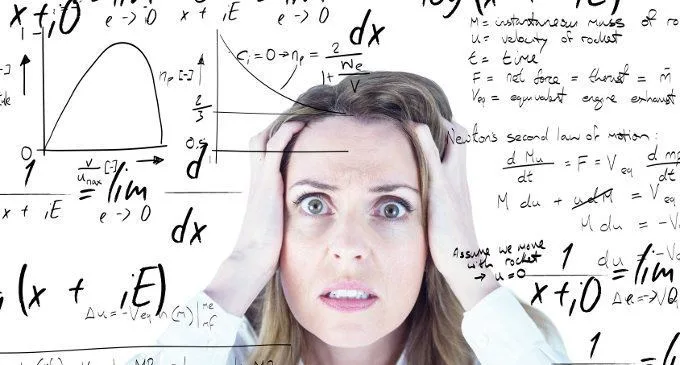Questo articolo ha partecipato al Premio State of Mind 2014 Sezione Junior
L’ansia matematica: uno studio nelle classi seconde delle scuole secondarie di primo grado
Autore: Eleonora Mercadante (Università degli Studi di Urbino ‘Carlo Bo’)
Abstract
L’ansia matematica può venir identificata genericamente con la paura per la matematica. Tutto ciò può portare a una vera e propria fobia ossia ad un ripudio ed un evitamento dell’aritmetica. Il presente lavoro si è posto di rilevare se esiste una relazione fra ansia matematica e apprendimento matematico e verbale; rilevare se esiste una relazione tra ansia matematica e memoria di lavoro; verificare se questa relazione sia dominio specifica, cioè limitata solo all’elaborazione di materiali numerici, o si estende anche a materiali verbali; esaminare le correlazioni esistenti tra ansia matematica, memoria di lavoro, competenze matematiche e competenze verbali; cercare di chiarire le relazioni causa-effetto tra ansia matematica, memoria di lavoro e apprendimento matematico; rilevare se esistono delle differenze di genere nell’ansia matematica.
I risultati affermano che l’ansia matematica sembra avere un’influenza solo sulle prestazioni matematiche più complesse che richiedono un maggiore carico cognitivo e non sembra invece influenzare le capacità di calcolo e di elaborazione numerica che sono abilità computazionali, di solito automatizzate e che richiedono meno risorse cognitive. Non sono state rilevate differenze significative nelle prestazioni della memoria di lavoro numerica e verbale tra i soggetti ad alta ansia matematica e quelli con bassa ansia matematica, né correlazioni significative tra i livelli di ansia matematica e le prestazioni della memoria di lavoro numerica e verbale. Non risultano esserci differenze di genere per quanto riguarda l’ansia scolastica, ma esistono, differenze significative tra maschi e femmine nei livelli di ansia matematica totale e specificatamente nell’ansia da valutazione.
Abstract (English)
The mathematics anxiety can be identified generally by the fear of math. This can lead to a real phobia or a rejection and an avoidance of arithmetic. The present work want to see if there is a relationship between mathematics anxiety and mathematical and verbal learning; detect whether there is a relationship between mathematics anxiety and working memory; determine whether this relationship is domain specific, is limited only to the development of digital materials, or also extends to verbal materials; examine the correlation between math anxiety, working memory, math skills and verbal skills; try to clarify the cause-effect relationships between mathematics anxiety, working memory and learning mathematics; detect whether there are gender differences in mathematics anxiety.
The results affirm that the mathematics anxiety seems to have an influence only on the performance more complex, requiring greater cognitive load and doesn’t have an influence on the ability of calculating and numerical processing which are computational abilities, usually automated and which require less cognitive resources. There isn’t a significant difference in the performance of numerical and verbal working memory among subjects with high math anxiety and those with low math anxiety, no significant correlations between the levels of mathematics anxiety and performance of numerical and verbal working memory. It seems there aren’t gender differences regarding school anxiety, but there are significant differences between males and females in the total levels of math anxiety and anxiety specific for the evaluation.
Keywords: math anxiety, math phobia, working memory, mathematical learning, gender differences
ALLEGATO 1 – ALLEGATO 2 – ALLEGATO 3



